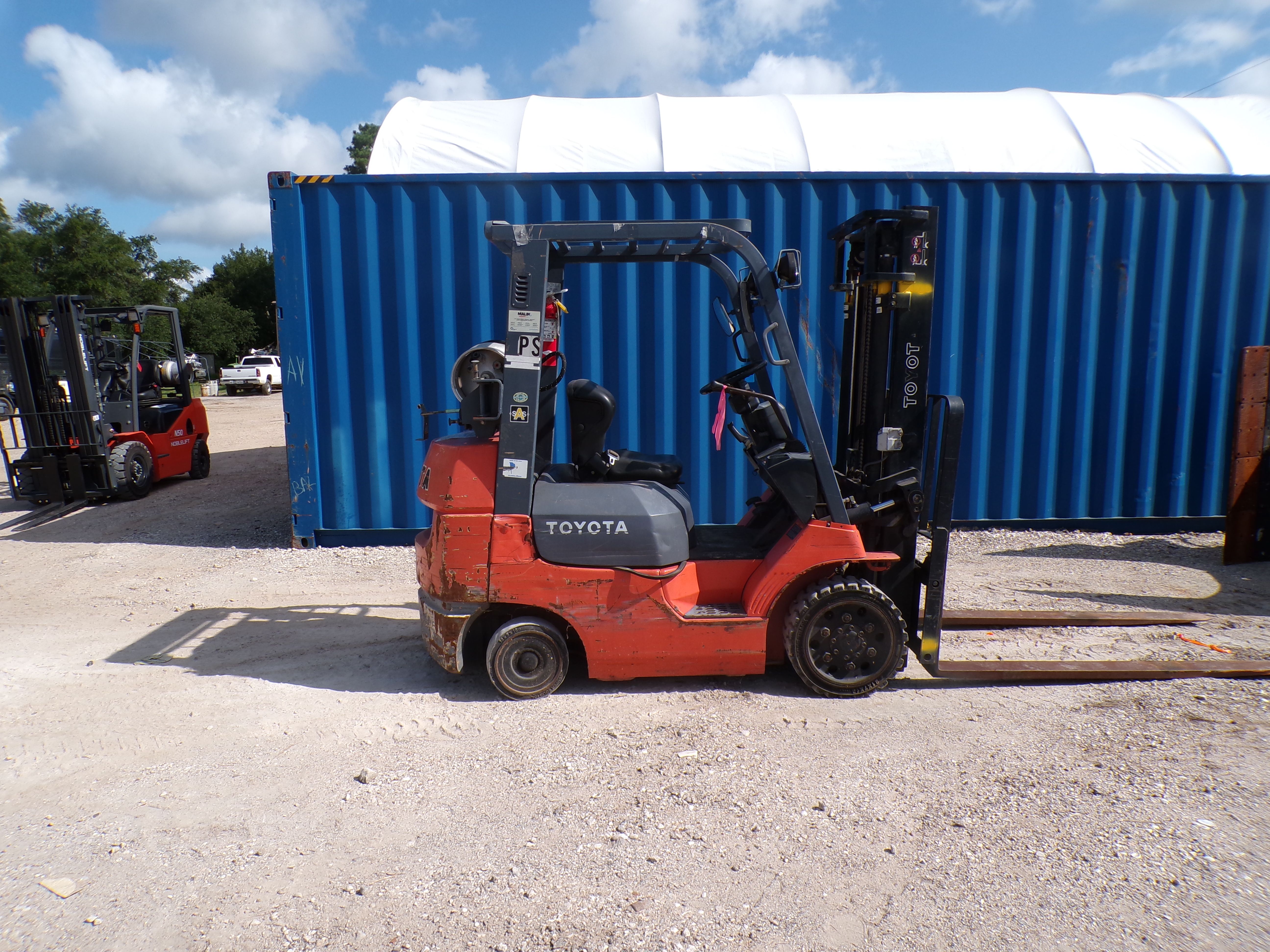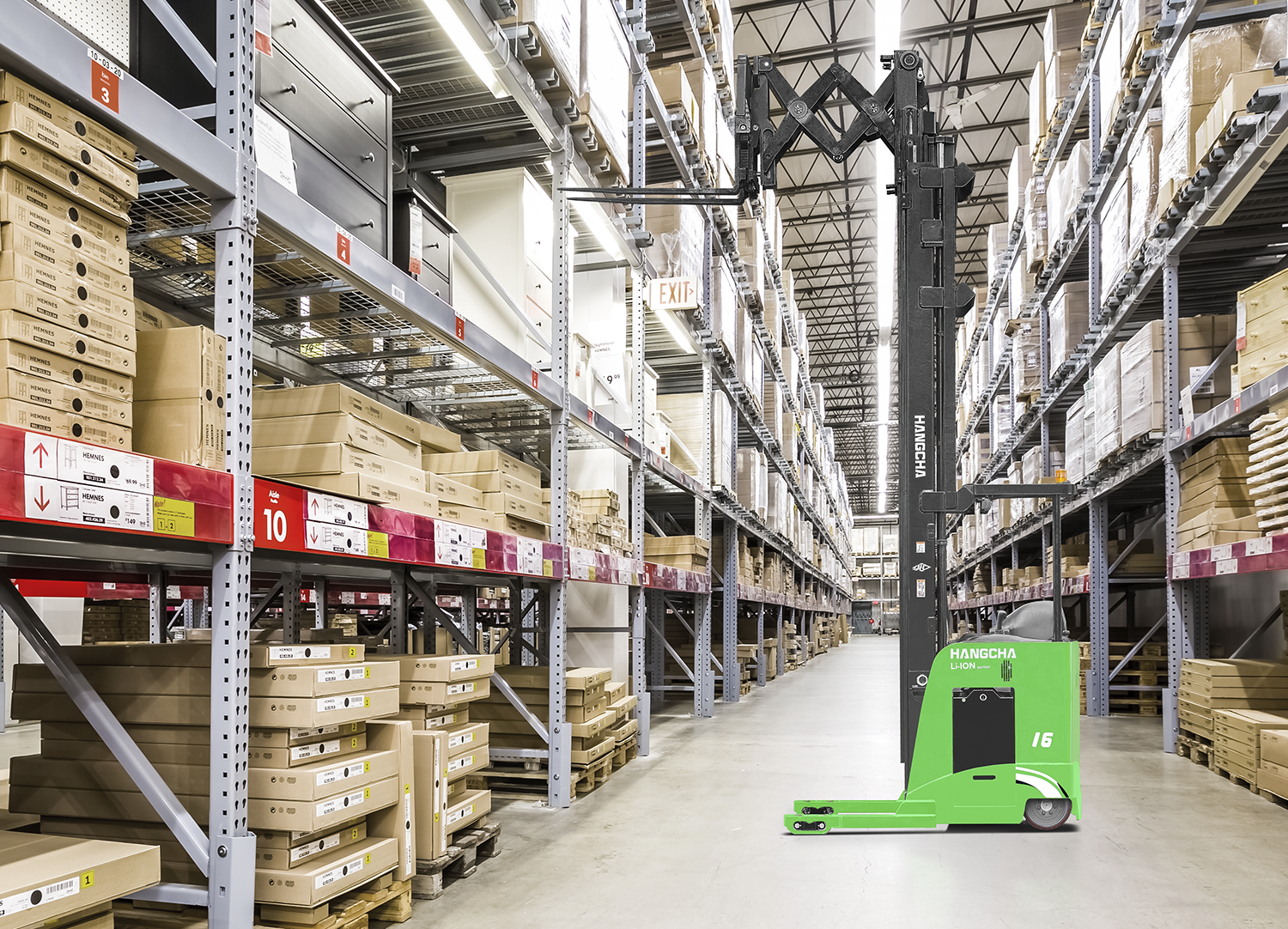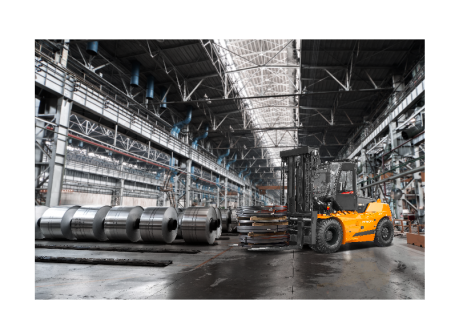Choosing the Right Forklift Solution for Your Business
Forklifts play a critical role in industries such as warehousing, construction, and manufacturing, helping businesses handle heavy loads efficiently. Whether moving pallets in a distribution center or transporting materials on a job site, forklifts improve productivity and streamline operations. However, one of the biggest decisions businesses face is whether to rent or buy a forklift.
Both options come with advantages and drawbacks, making the right choice dependent on factors like budget, usage frequency, operational needs, and maintenance costs. Some businesses require forklifts year-round and may benefit from purchasing, while others experience seasonal spikes in demand, making rentals a more flexible solution.
Understanding the long-term financial impact, maintenance responsibilities, and scalability of renting versus buying helps businesses maximize efficiency while keeping costs under control. By weighing the benefits and challenges of each option, companies can make an informed decision that aligns with their goals and operational requirements.
Explore our forklift sales and equipment rentals to find the best solution for your business needs.
Pros and Cons of Renting a Forklift
Renting a forklift is a practical solution for businesses that require flexibility, access to the latest technology, and reduced maintenance responsibilities. However, it also comes with financial and operational considerations. Understanding the benefits and challenges of renting a forklift helps businesses determine whether it aligns with their needs.
Advantages of Renting a Forklift
Lower Upfront Costs and Financial Flexibility
Renting a forklift eliminates the high initial investment required for purchasing, making it an attractive option for businesses managing cash flow. Instead of tying up capital in equipment, companies can allocate funds to essential areas such as operations, staffing, and expansion.
- Ideal for startups or small businesses that need forklifts without large upfront expenses.
- Enables businesses to invest in growth rather than long-term equipment ownership.
- No need for financing or taking on additional debt to acquire equipment.
Access to the Latest Models and Technology
Rental fleets are frequently updated with new forklift models that feature advanced technology, better fuel efficiency, and improved safety features. Businesses that rent gain access to modern equipment without the risk of owning outdated machines.
- Rentals provide forklifts with the latest ergonomic designs and automation features.
- Avoids long-term commitment to forklifts that may become obsolete as technology advances.
- Companies can test different forklift models before committing to a purchase.
Ideal for Short-Term and Seasonal Needs
Some industries experience fluctuating demands, requiring forklifts only during peak seasons. Renting allows businesses to scale their fleet up or down based on operational needs, preventing unnecessary costs during slower periods.
- Best suited for industries like retail, e-commerce, and logistics during peak seasons.
- Construction projects with temporary equipment needs benefit from rental flexibility.
- Avoids unnecessary forklift ownership during off-peak periods.
Reduced Maintenance and Repair Responsibilities
Forklift rentals often include maintenance and repair services, reducing operational costs. Since rental providers handle servicing, businesses do not need an in-house maintenance team or additional service contracts.
- Eliminates expenses related to forklift repairs, parts replacement, and technician fees.
- Reduces downtime by ensuring forklifts remain in optimal working condition.
- Saves businesses from the hassle of long-term maintenance planning.
Disadvantages of Renting a Forklift
Higher Long-Term Costs
While renting provides short-term financial relief, the cumulative cost over an extended period can exceed the expense of purchasing a forklift outright. Monthly rental payments add up, making ownership the more cost-effective choice for long-term use.
- Long-term rentals can be more expensive than purchasing a forklift outright.
- Companies do not build equity in the equipment, meaning they do not own an asset.
- If a business relies on forklifts daily, purchasing may be the better financial decision.
Limited Customization and Ownership Restrictions
Rental forklifts are provided as-is, meaning businesses may not be able to modify them with specialized attachments or configurations required for unique operations. Additionally, rental agreements may impose usage restrictions.
- Custom attachments, such as clamps, rotators, or specialized forks, may not be allowed.
- Businesses must adhere to rental terms, which may limit operational flexibility.
- Long-term renters may face renewal challenges, leading to operational disruptions.
Making the Right Choice for Your Business
Renting a forklift is an excellent option for businesses looking for financial flexibility, access to modern equipment, and reduced maintenance responsibilities. However, it may not be the best fit for companies with long-term forklift needs, specialized operational requirements, or the desire to build equipment equity.
For expert guidance on forklift rentals and sales, contact our team today to find the best solution for your business.
Pros and Cons of Buying a Forklift
Purchasing a forklift is a significant investment that can provide long-term benefits for businesses with continuous material handling needs. However, ownership comes with financial and maintenance responsibilities that businesses must consider before making a decision.
Advantages of Buying a Forklift
Long-Term Cost Savings
While the initial cost of purchasing a forklift may seem high, it often results in significant savings over time. Businesses that use forklifts daily can avoid recurring rental fees and gain financial advantages by investing in their own equipment.
- Eliminates ongoing rental payments that accumulate over time.
- Provides cost predictability without concerns about fluctuating rental rates.
- Reduces total ownership costs after the initial investment is recovered.
Businesses that operate forklifts for multiple shifts each day often find that ownership is the most cost-effective choice in the long run.
Full Ownership and Customization Options
One of the major benefits of purchasing a forklift is the ability to customize and modify the equipment to meet operational needs. Unlike rental units, which may have restrictions, owned forklifts can be configured with attachments, accessories, and software to enhance efficiency.
- Custom attachments such as clamps, rotators, and fork positioners optimize performance for specific tasks.
- Owners can choose brand-specific upgrades to maximize productivity in their industry.
- No restrictions on how long the forklift can be used, making it a flexible asset for daily operations.
Tax Benefits and Asset Depreciation
Purchasing a forklift provides financial benefits through tax deductions and depreciation. Businesses can write off forklift expenses, reducing their taxable income and recovering some of the initial investment.
- Forklifts count as business assets, qualifying for depreciation deductions over time.
- Certain tax incentives, such as Section 179 deductions, allow businesses to write off large portions of equipment costs.
- Forklifts with proper maintenance retain higher resale value, further offsetting costs when upgrading.
Disadvantages of Buying a Forklift
High Initial Investment and Depreciation
The upfront cost of purchasing a forklift can be a financial burden, especially for small businesses or startups with limited capital. Depending on the model and specifications, a new forklift can cost anywhere from $20,000 to $100,000, requiring significant financial planning.
- Large capital outlay that may affect cash flow.
- Equipment depreciation reduces resale value over time.
- The risk of outdated technology, requiring potential upgrades.
While ownership is beneficial for long-term use, businesses should assess whether their financial position supports an upfront purchase before committing.
Ongoing Maintenance and Repair Responsibilities
Owning a forklift means taking full responsibility for servicing, maintenance, and repairs. Unlike rentals, which often include maintenance packages, owners must manage ongoing upkeep, increasing operational expenses.
- Regular maintenance is required to prevent costly breakdowns.
- Businesses must budget for replacement parts, servicing, and unexpected repairs.
- An in-house maintenance team or service contract may be necessary for repairs.
If a business lacks the resources for ongoing maintenance, renting a forklift may be the more practical option.
Key Considerations for Your Business
Choosing between buying and renting a forklift depends on multiple factors, including usage frequency, financial stability, maintenance resources, and business growth plans.
How Often Will You Use the Forklift?
The frequency of forklift usage is a crucial factor in deciding between ownership and rental. Businesses that rely on forklifts for daily operations, multiple shifts, and long-term projects benefit more from purchasing, while those with seasonal or occasional needs may find renting a better alternative.
- Daily operations with high forklift utilization justify ownership.
- Short-term or seasonal usage favors renting.
- Industries with fluctuating workloads benefit from rental flexibility.
Budget and Financial Planning
The financial stability of a business determines whether purchasing a forklift is a viable option. Companies with strong cash flow and predictable expenses can invest in equipment ownership, while businesses with tight budgets may find renting a better alternative.
- Ownership is a long-term investment that reduces costs over time.
- Renting preserves capital but may cost more in the long run.
- Financing and leasing options can make purchasing more accessible.
Maintenance and Repair Capabilities
Businesses with an in-house maintenance team or service contract can handle forklift ownership more effectively. Companies without technical staff may struggle with repairs, making rental a better option.
- Companies with dedicated maintenance teams can reduce repair costs.
- Businesses without technical expertise should consider rental options.
- Preventative maintenance plans help reduce unexpected expenses.
Scalability and Business Growth
If a business is rapidly growing or expanding, forklift needs may change over time. Renting allows for easy upgrades to newer models, while purchasing locks businesses into specific equipment.
- Startups or expanding businesses benefit from rental flexibility.
- Stable businesses with long-term needs should invest in ownership.
- Leasing options provide a middle ground for companies in transition.
Making the Right Decision for Your Business
Purchasing a forklift is ideal for businesses with high daily usage, long-term financial stability, and maintenance capabilities. However, for companies with seasonal demands, cash flow limitations, or evolving needs, renting provides a cost-effective and flexible alternative.
To explore the best forklift options for your business, contact our team today for expert guidance on forklift sales and rental solutions.
Best Forklift Rental Options in Houston
Forklift rentals provide businesses with the flexibility to meet operational demands without the financial commitment of purchasing equipment. Whether a company needs a forklift for a short-term project or long-term operational support, rental options offer a cost-effective solution. Understanding the types of forklifts available and choosing the right rental provider ensures maximum efficiency and minimal downtime.
Short-Term vs. Long-Term Rentals
When Short-Term Rentals Make Sense
Short-term forklift rentals are ideal for businesses that experience seasonal spikes, temporary projects, or unexpected equipment failures. Renting on a weekly or monthly basis allows companies to maintain operations without overcommitting financially.
- Retail businesses increase forklift usage during peak holiday seasons.
- Construction projects require specialized forklifts for short-term contracts.
- Logistics companies use rentals to meet fluctuating shipment demands.
Short-term rentals help businesses scale up operations quickly without long-term obligations.
The Benefits of Long-Term Rentals
Long-term forklift rentals provide an affordable alternative to purchasing, allowing businesses to use equipment without the high upfront cost of ownership. Companies that need forklifts year-round but prefer to avoid maintenance and depreciation costs often opt for six-month to multi-year rental agreements.
- Warehouses that require continuous forklift operations without ownership responsibilities.
- Manufacturers that need dedicated forklifts for production lines.
- Distribution centers handling large shipments daily.
Long-term rentals strike a balance between affordability and operational efficiency, making them a smart choice for businesses with consistent but evolving needs.
Types of Forklifts Available for Rent
Electric Forklifts for Indoor Warehousing
Electric forklifts are widely used in warehouses, distribution centers, and food storage facilities due to their quiet operation, zero emissions, and energy efficiency. They are best suited for indoor environments with smooth flooring and high shelving systems.
- Lower maintenance costs compared to internal combustion forklifts.
- Longer battery life with fast charging options for improved productivity.
- Ideal for enclosed spaces where air quality and noise reduction matter.
Diesel Forklifts for Heavy-Duty Applications
For outdoor and heavy lifting operations, diesel forklifts offer high torque and power. These forklifts excel in construction sites, shipping yards, and industrial manufacturing where rugged performance is required.
- Handles extreme loads better than electric models.
- Operates efficiently on uneven surfaces and rough terrain.
- Higher fuel efficiency for extended work hours without downtime.
Pneumatic Tire Forklifts for Rough Terrain
Pneumatic tire forklifts are designed for outdoor environments and challenging terrain. They are commonly used in agriculture, lumber yards, and large construction projects where surfaces may be uneven or unpaved.
- Air-filled or solid rubber tires absorb shocks for better stability.
- More durable and resistant to damage in harsh conditions.
- Greater traction for improved maneuverability on dirt, gravel, or wet surfaces.
Warehouse Forklifts for High Stacking Needs
Warehouse forklifts are optimized for indoor storage facilities where high-volume inventory movement is required. They are used for loading docks, racking systems, and order picking in warehouses and retail distribution centers.
- Compact size for narrow aisles and tight spaces.
- Extended lifting heights for multi-tiered racking.
- Efficient load handling for palletized goods and materials.
Why Choose Texas Equipment Source for Forklift Rentals?
Flexible Rental Plans for Every Business Need
Texas Equipment Source offers customized rental agreements that cater to short-term and long-term operational needs. Whether a company needs a forklift for a week, a month, or several years, we provide cost-effective rental solutions that fit different budgets and workloads.
- Short-term rentals for peak seasons and temporary projects.
- Long-term rentals with fixed, predictable costs.
- Flexible contracts to scale equipment up or down as business needs change.
New and Well-Maintained Forklifts for Maximum Efficiency
Our rental fleet includes new and late-model forklifts that are regularly inspected and serviced to ensure reliability, safety, and peak performance. Each forklift is thoroughly maintained to minimize downtime and improve efficiency in business operations.
- Modern forklift models with advanced features.
- Routine servicing included in rental agreements.
- Immediate replacements available in case of equipment failure.
Competitive Pricing with Maintenance Included
Renting from Texas Equipment Source eliminates unexpected repair costs. Our rental packages include scheduled maintenance, breakdown servicing, and expert support, ensuring businesses stay productive without extra expenses.
- No surprise repair costs with full-service maintenance included.
- Competitive rental rates tailored to industry needs.
- Expert customer support for quick troubleshooting and assistance.
Explore our Forklift Rental Options or Get a Free Quote today.
Making the Right Choice for Your Business
Selecting between forklift rental and ownership depends on a company’s budget, workload, and long-term operational needs.
- Renting is ideal for businesses with short-term projects, seasonal demands, or limited maintenance resources.
- Buying is better for companies with high forklift utilization, stable cash flow, and in-house servicing capabilities.
- Long-term rentals offer a middle ground, providing cost savings without ownership responsibilities.
For businesses unsure about which option suits their needs, our team at Texas Equipment Source offers expert guidance on forklift rentals and sales. Contact us today to find the right equipment solution for your business.






